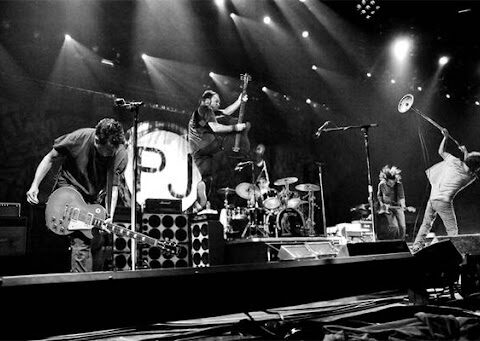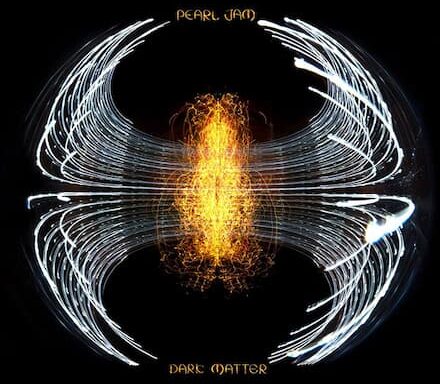If you haven’t seen the music videos for ‘Blackstar’ or ‘Lazarus’ yet, they’re pretty mesmerising.
The songs themselves are fascinating entities, especially the former. Both lyrically and musically, they’re both incredibly absorbing and compelling entities.
But the imagery in the videos also makes for a surreal, absorbing experience.
The ‘Blackstar’ video in particular is very weird: full of strange images and ideas and probable occult symbolism.
When an artist dies, it’s very easy and almost cliched to start looking for additional meaning or subtext in their most recent work; but in Bowie’s case, it seems pretty obvious that his final album, Blackstar – released just days before his death – is deliberately designed to act as a great maestro’s final act.
This has been confirmed by the album’s producer, who affirms that Blackstar – released on what was Bowie’s 69th birthday – was knowingly Bowie’s final, parting gift to the world and to his fans.
Even most Bowie fans wouldn’t have had the chance to listen to it before the news of Bowie’s passing was announced.
A carefully-orchestrated farewell to his fans is what Blackstar is being described as.
I’ve haven’t yet had time to listen to the album fully; only the aforementioned ‘Blackstar’ and ‘Lazarus’. And they’ve both blown me away. I saw the video for ‘Lazarus’ and thought it was incredibly compelling, the video perfectly capturing the profound nature of the lyrics and deeply transcendent theme of the song. It reminded me immediately of Johnny Cash’s bittersweet cover of Nine Inch Nails’ ‘Hurt’, which had seemed destined to particularly resonate after Cash’s death.
Except this one’s no cover version – but something crafted out thoughtfully by Bowie, from lyrics and music to visual imagery. In both cases, he was clearly trying to convey something particular.
The track ‘Blackstar’ itself is a deeply absorbing piece of music that effortlessly combines and marries so many disparate elements (drum-and-bass, even Gregorian-style tone, unorthodox time-signatures) and evokes so much; it’s extraordinary that any artist of Bowie’s age and experience would still be crafting out music of this kind or of this level of potency.
Classed loosely as ‘art-rock’, but by some as ‘avant-garde jazz’ – really, it doesn’t have a classification, other than ‘Bowie’ (a genre unto itself).
And that’s a key difference between a Bowie and, say, a McCartney or Jagger; David Bowie remained so creatively potent all through his long career, even to the very last musical breath. Any other artist who’s been writing and performing as long as he had, would’ve been too tired or jaded a long time ago to be composing music on this scale – or of this kind of potency.
I would go so far as to cite ‘Blackstar’ as Bowie’s greatest ever composition.
The epic scale of it, the marrying of styles and genres, the offbeat time-signatures and unorthodox structure; it’s all mesmerising. It is also very haunting, both in terms of the words and of Bowie’s ghost-like singing tone in places. Some of it sounds like a chant or invocation: the whole thing feels like a religious experience.
Even listening to ‘Blackstar’ without watching the video feels like an out-of-body experience.
The Johan Renck directed video for ‘Blackstar’ is compelling, baffling and rich with esoteric imagery; not as directly life-and-death oriented as ‘Lazarus’, but still suggestive of a deep contemplation of cosmic and existential themes.
A lot of it is difficult to fully decode.
There seems to be the corpse of Major Tom in one segment of the video. There also seems to be, as mentioned earlier, occult references scattered throughout the surreal and unsettling video: from the the possible ‘Black Sun’ (or even Nibiru-type planet?) to the seeming performance of esoteric rituals hints of possession; and Bowie himself holding up a worn-looking book that looks like some kind of scripture.
Probably occult images and meanings aren’t surprising: Bowie was known to be into the occult and particularly Alistair Crowley. Maybe he was still grappling with these ideas and themes, even towards his end.
That said, ‘Lazarus’ seems to go the opposite direction with more of a direct Biblical allusion.
Precisely what Bowie was saying or conveying with ‘Blackstar’, in terms of the video, isn’t entirely clear. It is seemingly deliberately esoteric and open to interpretation. Probably a number of things. But, clearly, his sense of mortality and imminent demise is the central theme – as it seems to be in the lyrics; ‘Blackstar’, both in the video and in the lyrics, seems to be a confronting of the cosmic mysteries that approach with death.
The title ‘Blackstar’ – taken by some to be an occult reference (to the ‘Black Sun’, for example, or the anti-life) – is actually, we’ve been told, a reference to the type of tumour that characterised his terminal illness.
But, knowing Bowie, there’s probably dual meaning and clever word play involved too. I have no idea what the “villa of ormen” is referring to. And the repeating line, “in the center of it all, your eye”, will prompt some to interpret this as a reference to the occult all-seeing-eye or one-eyed symbolism: but I’m not sure it’s that straightforward. I’ve already seen someone interpreting the entire video as being filled with Satanic imagery and invocations: but, again, I’m not sure it’s that straightforward.
It’d be easy, even cliched, for people to pour over every detail in the video in the context of Bowie’s condition and his passing; although, as with Nirvana’s ‘Heart-Shaped Box’ video, it is difficult not to.
That being said, there’s clearly even some masonic-related symbolism in there, as with possibly the motif of the blindfolded eyes in the ‘Lazarus’ video. But, then again, the blindfolded eyes could also simply represent the symbolic blindness of entering the unknown (as in the realm of death itself). Again, it would be like Bowie to engage in dual meanings and word play.
‘Blackstar’ is a fascinating – if, again, unsettling – video: and a brilliant piece of musical composition too. And the fact that it prompts so much analysis and interpretation is possibly Bowie’s intent. If so, it’s a hell of a final offering.
‘Lazarus’ is less obscured in its meaning: but almost just as powerful.
“Look up here, I’m in heaven” is a staggering first line from an artist fully aware of his mortality and, on some level, singing to his listeners and fans, knowing that he might already be beyond this world by the time most people were first hearing it.
Lazarus was of course the character in the Gospels who is miraculously raised from the dead by Jesus; so for Bowie to invoke an image of resurrection and ‘cheating death’, particularly for his final single and video, is incredibly rich with resonance and meaning. The thing that’s so striking about the ‘Lazarus’ video is that it ultimately seems to become triumphal, like both a confrontation with, but also an embracing and conquering, of the mysteries of mortality.
It feels both unsettling and ultimately beautiful; and it hints at a belief or embracing of the idea of resurrection or of life beyond life.
At the very least, it seems to depict a powerful idea of liberation at the end of a long struggle.
One of the legends about the myth of the Biblical Lazarus is that he supposedly lived on forever, having been supernaturally revived from the grave.
One of the most striking things about an old film called Barabbas (starring the late Anthony Quinn) was a scene in which Quinn’s character Barabbas encounters the living Lazarus; this strange otherwordly figure who simply can’t die anymore because he has been made to conquer death.
As a theme for a final single to be released within David Bowie’s lifetime, what a powerful myth to invoke.
The idea of an artist producing a piece of work fully intended to be their final statement to the world is compelling and poignant. David Bowie, we are told, had been struggling with cancer for a year-and-a-half and must’ve been incredibly in touch with his mortality and deeply contemplating the great issues and mysteries of life, death and existence.
It’s extraordinary that someone in that situation would continue to strive to work, but Bowie was a prolific artist; and it’s fitting that the man who pretty much invented the concept album would strive to create one last epic piece of work.
And that an artist whose life itself has been described as a work of art should make his own mortality a final work of art too.
It was always evident that Kurt Cobain followed a vaguely similar route with Nirvana’s brilliant final album, In Utero, in 1993, though probably in a less complete way. The In Utero album was replete with imagery, art and lyrics relating to death, birth and the life cycle; but Cobain, for all his brilliance, wasn’t necessarily the completist that Bowie was.
And it is both poignant and wonderful that David Bowie has bowed out with a deliberate, considered piece of work that was designed to – and certainly will – resonate on a transcendent level.
Said his friend and producer, Tony Visconti; “His death was no different from his life – a work of Art. He made Blackstar for us, his parting gift. I knew for a year this was the way it would be.”
Listening to some of this new, parting and final music of Bowie’s, there is a sense of willful transcendence and of willful triumph in the midst of pain, suffering and mortality; turning a finite struggle into something beautiful or even defiant.
Both ‘Lazarus’ and ‘Blackstar’ hint that maybe that’s how David Bowie wanted to see his imminent mortality; as the last, and also the ultimate, chance to rise to the occasion.
Whether that’s true or not – and we can never know what he was thinking or feeling over the course of these last eighteen months – it’s a brilliant, perfect way to think of his final days and his final creative act: as a sort of willful apotheosis.



